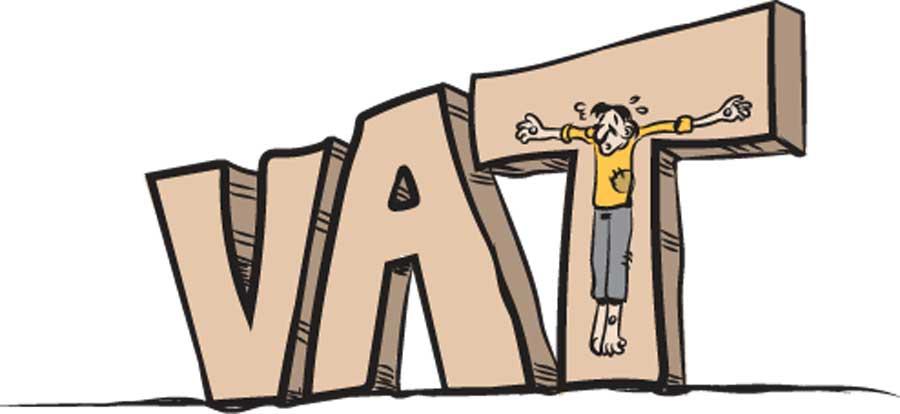21 Nov 2023 - {{hitsCtrl.values.hits}}

Against the backdrop of the government’s plans to increase the VAT (value-added tax) from 15 percent to 18 percent from January next year in order to meet the revenue target set by the International Monetary Fund (IMF) under its bailout package for Sri Lanka, the Daily Mirror yesterday reported that the number of VAT files registered is found to be way below the actual figure.
No doubt, this denies substantial revenue collected from end consumers of goods and services to the state coffers. The Committee on Public Accounts (COPA) Chairman State Minister Lasantha Alagiyawanna had told the Daily Mirror that the difference between the actual number and the registered number could be ‘unbelievable’, citing that only 13,000 files had been registered.
VAT is a consumption tax levied on goods and services ultimately paid by the end consumer. It is common knowledge that once Vat is imposed it is levied automatically from all customers. If the State Minister is lamenting that the moneys levied from the people are not reaching the government coffers, who is to blame?
The issue had been discussed when the COPA met last Wednesday to examine the Auditor General’s reports and current performance of the Inland Revenue Department (IRD). During the meeting COPA Chair had asked the IRD officials whether there is a possibility to take over and maintain the Revenue Administration Management Information System (RAMIS computer system) in the Department. However, the officials had given a negative answer citing lack of proper human resources.
These lamentations of shortfall of revenue collection and the human resources by the ministers and the IRD officials have become a routine issue over which no action seem to be taken for the past several years. The IRD officials had made this claim of being understaffed at a time when President Ranil Wickremesinghe, in his capacity as the Finance Minister has projected a tax revenue of 4.1 trillion rupees for next year. Compared to the current year’s target of 2.85 trillion rupees, this is clear to be a very high target.
Ten months ago the then COPA Chairman Kabir Hashim MP had stated that the IRD under the Ministry of Finance, invested LKR 10 billion towards building RAMIS in 2014 to modernize and improve the tax collection process. However, it’s now revealed that the system doesn’t operate as intended, despite the fact that more money has already been spent to strengthen this system, Despite the claims of shortage of skilled staff at the IRD to handle the RAMIS, one media report said the RAMIS is a customized version of Singapore’s IRAS application and the arrangement also included training sessions for IRD staff as part of the implementation process of the system. It also said that these sessions were carried out in 2013 via the Singapore e-Government Leadership Centre over a course of three years.
Earlier, COPA proposed the appointment of two subcommittees to bring the RAMIS to operational capacity. One committee was to be established by the Attorney General under the leadership of the Secretary of the Ministry of Finance. Even the 2022 budget proposals specified a full implementation of RAMIS within the year. But nothing has happened. Just three weeks prior to Mr. Alagiyawanna’s lamentation State Minister for Finance Shehan Semasinghe had also told media that the RAMIS system will be upgraded within the next few weeks to eliminate the contacts between the tax payers and tax administrators.
Economynext website quoting Finance Ministry officials said last month that IRD employees had been resisting the RAMIS issue because it prevents direct interactions with taxpayers and possible bribes for defaulting or under paying taxes. Government leaders have been waxing eloquent on digitization of the state machinery for sometime without taking serious action towards that end, weeding out the saboteurs.
If the government fails to meet the tax revenue targets imposed by the IMF, it would again attempt to extract moneys directly by way of water and electricity tariffs from the masses who are already paying huge amount of indirect taxes. Already the authorities have announced that electricity tariff would be ‘revised’ on a quarterly basis. Continuity of this situation might be an invitation for another Aragalaya.
27 Jul 2024 7 hours ago
26 Jul 2024 26 Jul 2024
26 Jul 2024 26 Jul 2024
26 Jul 2024 26 Jul 2024
26 Jul 2024 26 Jul 2024